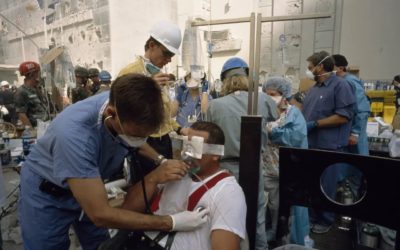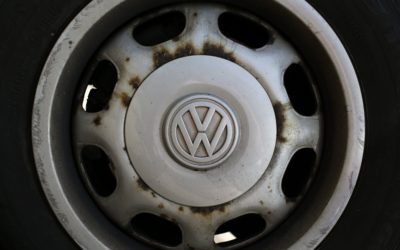SUNDAY’S NEWS SHOWS, BROUGHT TO YOU BY BIG OIL
June 4, 2012
While Big Oil is always active during an election season, this year news and radio shows have been particularly shameless about airing back-to-back commercials propounding the virtues of oil and gas. Just yesterday, Sunday’s lineup featured a parade of ads from the American Petroleum Institute — the Washington lobby for Big Oil — hailing oil and gas companies for paying for health care and schools and saying they have created 9.2 million jobs nationwide. It did not offer any independent sourcing to back up those claims, but I am guessing it’s safe to assume we can trust them?
If an oil company is building a school, frankly, I would like to know about it. I am still waiting to hear back on the name and location of these schools. Or even just one school.
Sunday is the major news networks’ time to roll out their TV version of The New York Times Sunday section. On “This Week With George Stephanopoulos,” a commercial break featured the American Petroleum Institute, Chevron and British Petroleum — in a row.
Pandering To Oil And Gas
While it’s no secret news shows are increasingly desperate for cash, this gives the impression that some shows are literally for sale. If that’s true, it is a bad time for it, as this country is in dire need of objective, non-ad-fueled journalism. The Fourth Estate is the last barrier against obfuscation and corruption and, lately, it is not doing the greatest job of keeping its head above the fray.
If news outlets don’t take seriously the need for diverse messaging not only in the content of their programming, but also when it comes to their commercials, it isn’t that different from narrowing the conversation to hard Orwellian limits. Here, an example of what really happens during an American Petroleum Institute commercial shoot that purports to feature “real” Americans.
So, onto the commercials themselves (which were hilarious if you could ignore for one second that a single member of the viewing public might actually believe them).
A tip to the Big Oil marketing agencies: if you are going to make a misleading ad, try to not make it so hysterical.
Surreal Oil And Gas Ads
Among Sunday’s procession, the American Petroleum Institute managed to look the least ridiculous (which is kind of like complimenting someone for being the world’s tallest midget), while Chevron’s ad featured a young blonde woman, supposedly a Chevron employee, making intense statements about how “proud” she was of the company for investing in American concrete and American steel (a little too weird).
The BP commercial, however, took the cake…
Extolling tourism in all the places where it’s spilled the most oil, the company’s message — set to chirpy harmonica music — could only be called surreal. Considering how upset Americans remain over the Gulf region being ruined, this ad would have you believe that the oil spill made things better.
From a comedic standpoint, highly entertaining. From any other standpoint, not so much.
Related Stories
Child Abuse Inquiry on Top Tax Shelter Jersey Island Delayed Again
In 2008, police unearthed the remains of at least 10 children, ages 6 to 12 years old, under a shuttered residential care home, on the island of Jersey—a territory of the British Crown, off the coast of France.
9/11’s Second Wave: Cancer and Other Diseases Linked to the 2001 Attacks Are Surging
As many as 400,000 people are estimated to be affected by diseases, such as cancers, and mental illnesses linked to September 11. This figure includes those who lived and worked within a mile and a half of Ground Zero in Manhattan and Brooklyn, the vast majority of whom still don’t know they’re at risk. Mark Farfel, director of the World Trade Center Health Registry, which tracks the health of more than 71,000 rescue workers and survivors, says, “Many people don’t connect the symptoms they have today to September 11.”
Why Volkswagen’s Emissions Scandal Could Happen Again
Why Volkswagen's Emissions Scandal Could Happen AgainLeah McGrath Goodman Newsweek June 15, 2016n a repeat of the events that preceded Volkswagen's emissions cheating scandal, the U.S. Environmental Protection Agency (EPA) is once again...



